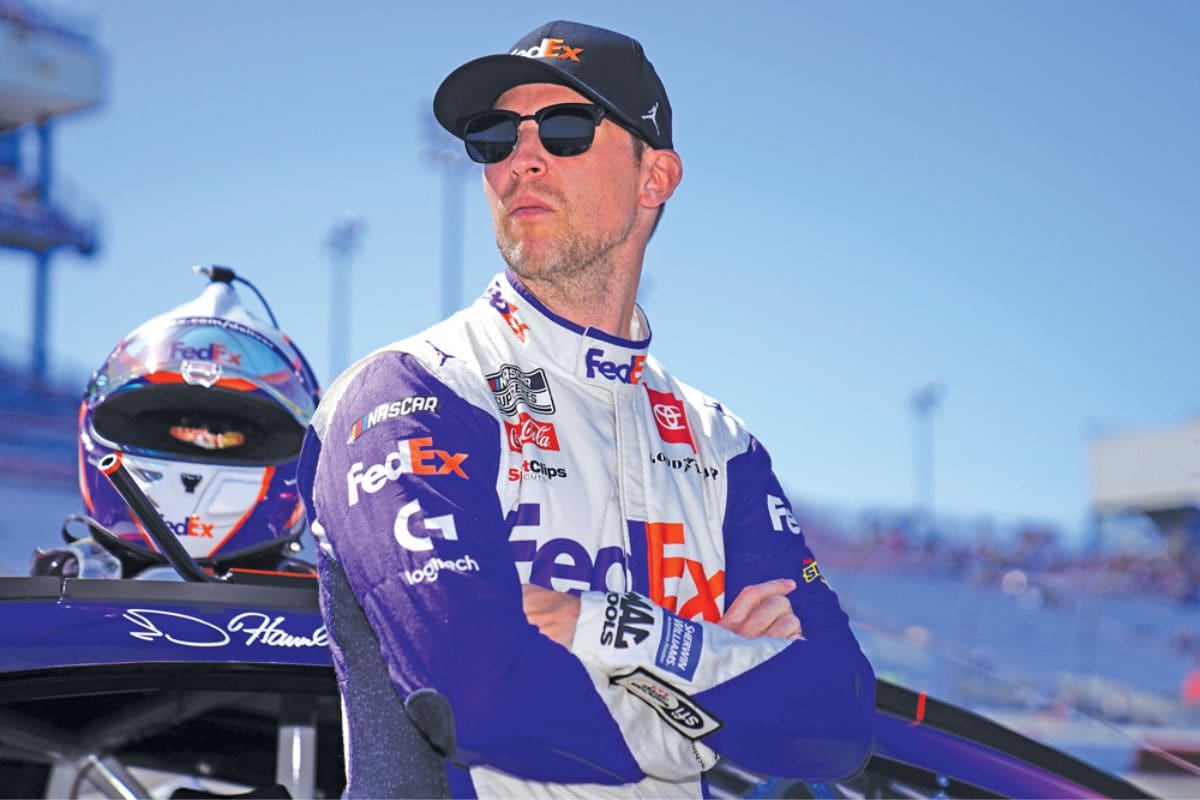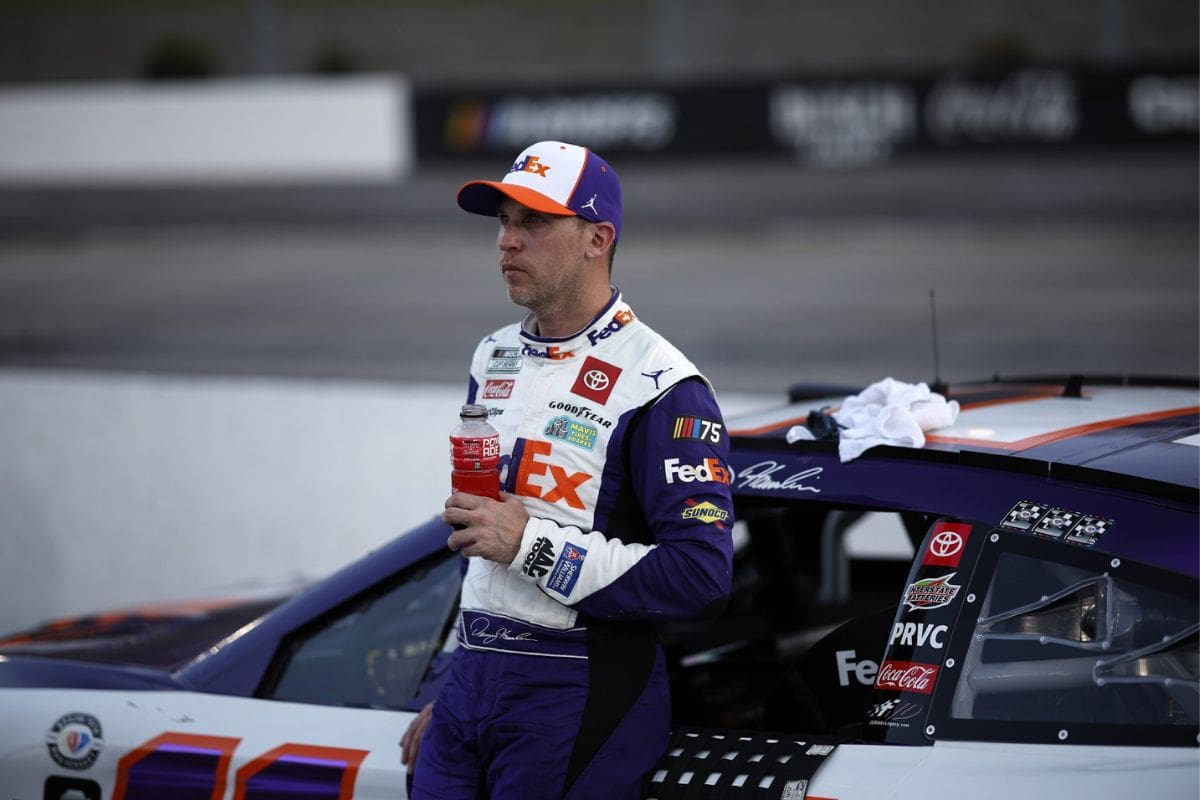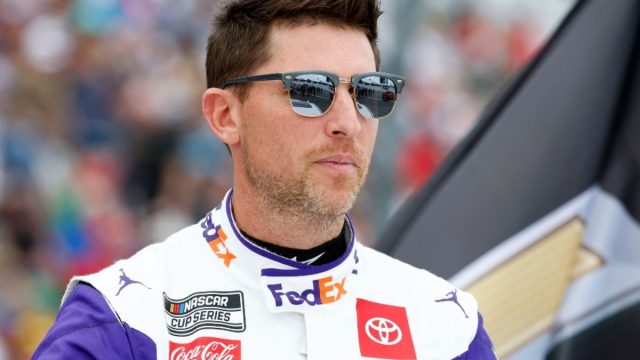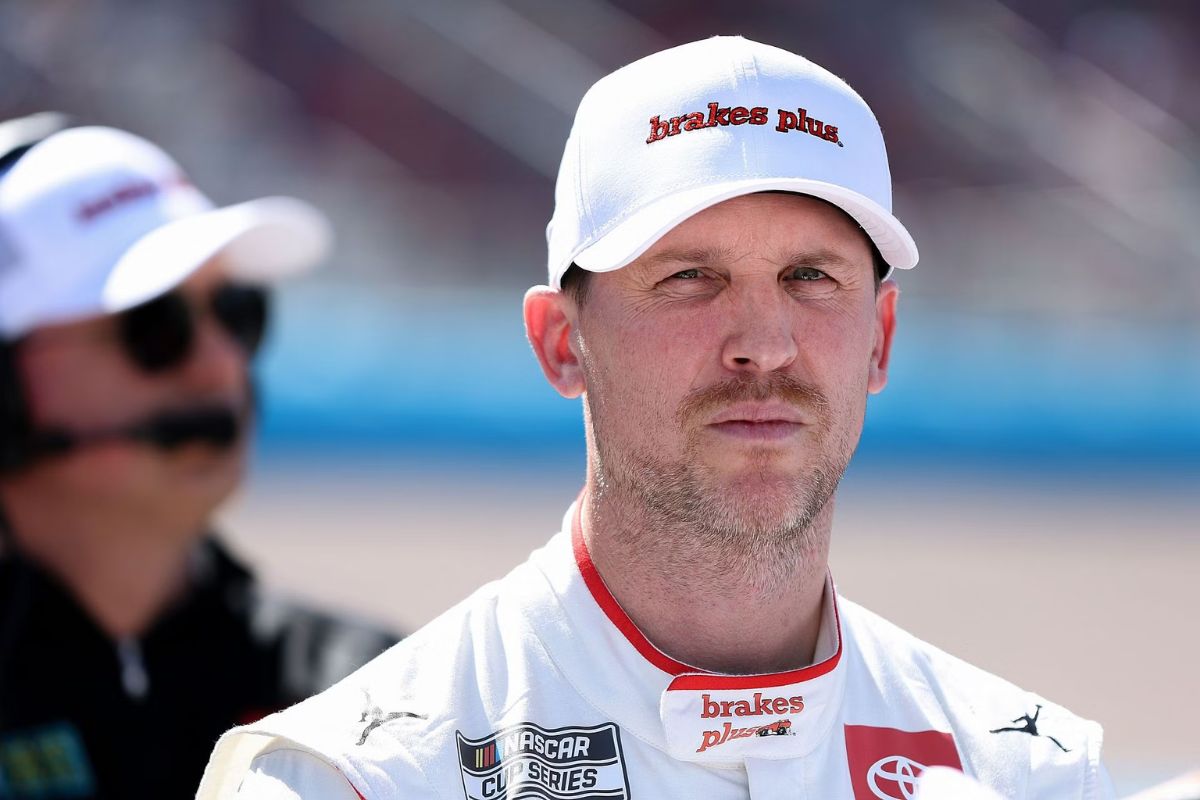Denny Hamlin Reveals Teams Slash Inventory: The recent disclosure by Denny Hamlin regarding the substantial reduction in inventory spending by NASCAR teams from $1 million to $100,000 offers a peek into the strategic financial tactics within the sport. This insight prompts a thought-provoking examination of how such stringent cost-cutting measures may influence the competitive landscape of NASCAR. The implications of this shift towards frugality in resource allocation raise pertinent questions about the sustainability and adaptability of teams in a high-stakes environment where performance hinges not only on skill but also on financial expertise.
Key Takeaways
- Joe Gibbs Racing reduced inventory spending from nearly $1 million to $100,000.
- Team dynamics and resource management challenges were addressed.
- Strategic adjustments optimized inventory control.
- Cost-saving strategies and efficient tire management were prioritized.
- Collaboration enhanced operations and eliminated unnecessary costs.
NASCAR Community Reacts to Costly Tire Spending by Joe Gibbs Racing
The NASCAR community has been abuzz with discussions and critiques regarding the costly tire spending practices of Joe Gibbs Racing, following recent disclosures by Denny Hamlin. Tire management is a vital aspect of team budgets in NASCAR, where racing costs can escalate rapidly. Effective inventory control becomes paramount to mitigate the financial impact of excessive spending on tires. Joe Gibbs Racing’s approach to tire management has been under scrutiny, with questions raised about the efficiency of their strategies in controlling expenses related to this vital racing component.
As teams work to optimize their resources and improve cost-effectiveness, the disclosures by Denny Hamlin shed light on the importance of prudent inventory control in the competitive world of NASCAR. Balancing performance requirements with financial constraints is a delicate task that necessitates a meticulous approach to tire management. The financial impact of tire spending can greatly influence a team’s overall budget, making it essential for organizations like Joe Gibbs Racing to reevaluate and refine their strategies to ensure long-term sustainability in the sport.

Denny Hamlin Reveals Shocking Details
During a recent disclosure, Denny Hamlin, co-owner of 23XI Racing, revealed staggering details regarding Joe Gibbs Racing’s significant expenditure on unused tire sets throughout the 2022 season, sparking notable attention within the NASCAR community. The disclosure highlights the intricate dynamics of team operations and the profound financial implications of inefficient inventory management. Joe Gibbs Racing’s overspending on unused tire sets emphasizes the need for strategic adjustments to align with industry standards and improve performance impact.
| Category | Details |
|---|---|
| Financial Impact | Nearly $1 million spent on unused tire sets |
| Team Dynamics | Challenges in resource management |
| Strategic Adjustments | Need for inventory optimization |
| Performance Impact | Potential negative effects on team performance |
| Industry Standards | Deviation from cost-effective practices |
Hamlin’s disclosure not only sheds light on the internal workings of NASCAR teams but also prompts a critical evaluation of operational practices to ensure financial prudence and competitive edge within the racing industry.
“They’ve refined it a little bit more now but we still leave the racetrack sometimes with two or three sets on heavy weekends but on other weekends we use them all, so it’s just balanced itself out now. I would say that for each team, that number is probably closer to like 100 grand or something now.”(denny hamlin)
Efforts to Rectify Overspending
Efforts to rectify overspending have been a focal point for NASCAR teams, with a particular emphasis on optimizing tire usage to mitigate financial strain and improve performance efficiency. Cost-saving strategies have become crucial in the quest for financial efficiency, with teams like Joe Gibbs Racing (JGR) reevaluating their approach to inventory management.
One key area of focus has been tire management, as highlighted by Denny Hamlin attributing substantial tire expenditures to unused sets and challenges in maximizing tire utilization across races. Team collaboration has also played a key role in addressing overspending, with a collective effort towards streamlining operations and eliminating unnecessary costs.

Hamlin’s Solutions for NASCAR’s Tire Dilemma
Addressing NASCAR’s tire allocation challenges, Denny Hamlin has proposed practical solutions to optimize resource utilization within the sport. One of his suggestions involves exploring the implementation of tire refunds for unused tires, similar to recycling programs, to help teams mitigate financial waste. This idea could potentially revolutionize how teams manage their tire inventory, leading to more efficient use of resources and cost savings.
Additionally, Hamlin has advocated for a Formula 1 influence in NASCAR, proposing the introduction of different tire compounds. By adopting this approach, NASCAR races could see improved race dynamics and increased strategy diversity. The incorporation of different tire compounds would introduce an element of unpredictability, forcing teams to adapt their strategies on the fly, ultimately adding excitement and intrigue to the competition.
Hamlin’s creative ideas aim to address the current tire dilemma in NASCAR while also improving the overall quality of the racing experience for both drivers and fans.
“I mean, you know, that was (million dollar bill) actually probably due to the high tire allotment because they didn’t know how many tires we were going to burn, so they gave us a sh*t ton of tires and then we didn’t use them, and then of course then we’re kind of stuck with them at that point, so.”(Denny hamlin)
Prospects for Implementing Change
Given the evolving landscape of NASCAR’s cost-saving strategies and Denny Hamlin’s creative proposals for optimizing resource utilization, the prospects for implementing change within the sport are poised for careful evaluation and potential transformation. Hamlin’s proactive stance highlights the need for innovation in NASCAR’s cost-saving measures, emphasizing the importance of efficient inventory management and budget optimization. While his suggestions offer promising avenues for improvement, their implementation remains uncertain, requiring a thorough analysis of their impact on racing competitiveness. As NASCAR continues its efforts to streamline operations, Hamlin’s insights may influence future discussions on enhancing cost-effectiveness and race competitiveness. In the pursuit of innovation implementation, the following table outlines key considerations for NASCAR’s stakeholders:
| Cost Saving Strategies | Inventory Management | Budget Optimization | Racing Competitiveness |
|---|---|---|---|
| Implementing lean practices | Centralizing inventory control | Setting clear financial goals | Enhancing car performance |
| Reducing overhead costs | Digitizing inventory tracking | Prioritizing resource allocation | Improving driver training |
| Partnering with technology firms | Implementing real-time monitoring systems | Conducting regular financial reviews | Investing in research and development |
News in Brief: Denny Hamlin Reveals Teams Slash Inventory Spending From $1m to $100k
To sum up, the drastic reduction in inventory spending from nearly $1 million to $100,000 by teams like Joe Gibbs Racing reflects a strategic shift towards more efficient resource management in NASCAR.
This move highlights the importance of prudent cost-saving measures to improve financial efficiency and competitive performance.
By implementing such changes, teams can better position themselves for long-term sustainability and success in the sport.
Our Reader’s Queries
Q: How many DNFS does Denny Hamlin have?
A: Denny Hamlin’s Statistics and Results:
- 2022 (Entrant: Joe Gibbs Racing): 5 DNFs
- 2021 (Entrant: Joe Gibbs Racing): 0 DNFs
- 2020 (Entrant: Joe Gibbs Racing): 1 DNF
- 2019 (Entrant: Joe Gibbs Racing): 1 DNF
Also Read: Denny Hamlin’s Texas Rant: SMI Under Fire

